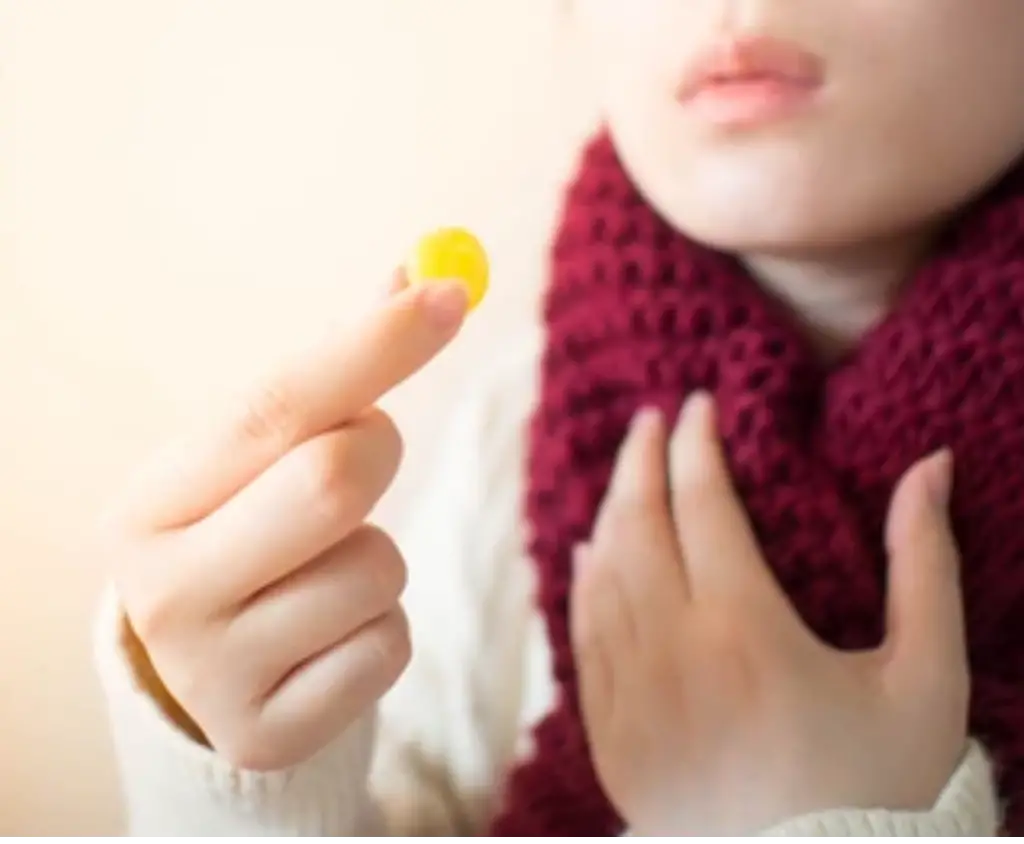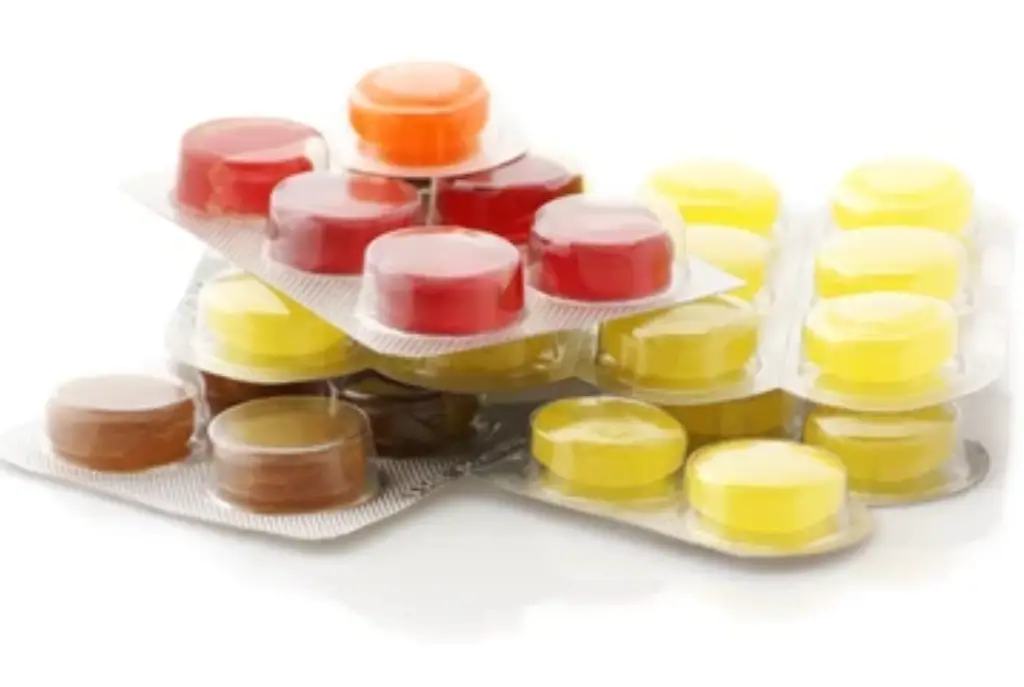Intermittent fasting can be an extremely effective method for burning fat and improving your health – as long as you do it correctly. This means avoiding foods that break your fast, such as sugar or artificial sweeteners, alcohol, and anything with a high glycemic index.
If you’re an avid IF enthusiast, you probably know which foods break your fast and which don’t. You might even have specific ideas about whether certain foods are IF-friendly or not.
Cough drops, also known as throat lozenges, are one of those things that many people aren’t sure about. Do cough drops break intermittent fasting?
Keep reading to find out!
Related Readings
What Are Cough Drops?
Cough drops are a type of cough remedy that you chew or suck on while you’re experiencing a cough. They’re usually made from herbs or other plant extracts that help soothe a sore throat and ease an annoying cough.
Some cough drops contain small amounts of sugar, so you must be careful when choosing which ones to buy. Many cough drops have added flavor, such as menthol, to help increase the soothing effect in your mouth.
You can buy cough drops at any drugstore, supermarket, or online. They’re very affordable and normally come in a small plastic or paper box. There are a variety of different flavors, shapes, and colors available.
Are Cough Drops Considered Sugar?
This is a tricky question because cough drops contain sugar, alcohol, and other ingredients that might break your fast. Cough drops are not as bad as real sugar, but they still break your fasting window.
When you have a cough drop in your mouth, your salivary glands begin to secrete an increased amount of saliva. This saliva is formed from water and electrolytes (sodium, potassium, and chloride) along with tiny amounts of protein.
When you have a dry mouth because you’re not drinking enough water, your salivary glands work overtime. This leads to reduced saliva flow, which makes your mouth feel extra dry, cracked, and uncomfortable.
Cough drops exacerbate this problem because they’re basically a concentrated solution of electrolytes. They’ll help your mouth stay wet, but they’ll also break your fast.
Do Cough Drops Break Intermittent Fasting?

Cough drops are a popular remedy for cough and sore throat, but what you might not know is that certain cough drops can actually interfere with the effectiveness of your intermittent fasting plan. In particular, menthol-containing cough drops can lead to upset stomach, and mint-flavored ginseng cough drops may cause diarrhea.
Even medications like decongestants and antihistamines can change the way your body absorbs nutrients and can throw off your fasting schedule. If you’re taking any type of medication, avoid these types of cough drops.
When you’re on an intermittent fasting diet plan, it means that you’re only eating between 12 and 16 hours every day (with some exceptions). This is a short period of time compared to other diets, so it’s important to fuel your body properly.
A well-balanced diet with plenty of healthy fats, protein, and low-calorie vegetables will help you feel satisfied throughout the day so that you don’t have to snack between meals.
If you find yourself craving something sweet between meals, reach for a piece of fruit instead — this helps satisfy your sweet tooth without adding empty calories to your diet.
Do Sugar-Free Cough Drops Break Your Fast?
Sugar-free cough drops are not a problem to consume while fasting. The main ingredient in cough drops is sucrose, which is an artificial sugar substitute. These are not metabolized by the body in the same way as regular sugar and will not affect your fasted state in any way.
Cough drops that contain sugar, like some cherry cough, drops, definitely break your fast. Keep your eye out for sugar-free varieties, and you should be fine.
Are Artificial Sweetener-Free Cough Drops OK?
Artificial sweeteners are commonly used in cough drop products because they provide a sugar-free option for people looking to avoid sugar. Some artificial sweeteners can cause side effects like headaches, stomach discomfort, and bloating. If you’re concerned about consuming artificial sweeteners during intermittent fasting, try using natural sweeteners instead.
While some artificial sweeteners are okay for intermittent fasting, others should be avoided altogether. For example, if you’re using a product that contains saccharin, use caution, as this ingredient has been linked with cancer in lab rats.
Additionally, avoid products that contain aspartame and sucralose as these compounds have been shown to disrupt the bacteria in our gut which is essential for proper digestion.
How to Fast with a Dry Mouth
If you’re fasting while you have a cough or a cold, use cough drops to keep your mouth moist. You don’t want to accidentally break your fast and then have to start over.
Cherry cough drops are the best choice because they’re the least likely to break your fast. Stay away from anything artificial because it’s full of chemicals that will break your fast.
Cherry cough drops are made from real cherries and don’t contain any added sugar or sweeteners. They’re a great way to keep your mouth wet without upsetting your stomach.
Keep drinking water, and try to eat foods that are naturally high in sodium. Salty potato chips, olives, and pickles are all good examples.
Does Menthol Help with a Dry Mouth?
Menthol is a cooling agent that’s often added to cough drops to enhance the soothing effect. It makes your mouth feel cool and refreshed, which is great if you have a dry mouth.
Cough drops with menthol are also less likely to break your fast because they’re less sticky. They’re less sticky because menthol is a natural anti-inflammatory.
Most cough drops contain sugar, so they’re likely to break your fast. If you can find a sugar-free variety, they’re safe to consume while fasting.
Will 10 Calories Break a Fast?

There are two main factors to consider when answering this question: calories consumed and number of hours spent in a fasted state.
When you are eating, your body breaks down food into glucose, which is the main fuel source for the body. When you start a fast, however, your body has to do a lot of work to break down your glycogen stores.
As a result, it burns more calories in order to initiate the process. You will burn approximately 30% more calories than normal when fasting. This can add up over time if you are not careful. If you are going on a short fast, this may not be much of an issue.
However, if you are fasting for an extended period of time (more than about 48 hours), it can really start to take its toll on your body.
The second factor is how many hours you spend in a fasted state. While fasting, your body mostly relies on sugar from stored glycogen for energy. When you consume food after being in a fasted state for more than 8-10 hours, your body converts most of that glucose to fatty acids instead of ketones and muscle glycogen.
As a result, you will experience impaired glucose tolerance (IGT) and elevated blood sugar levels when consuming carbs after a long period of time spent in a fasted state.
For these reasons, it is important not to break your fast too soon (within 8-10 hours) and to consume a small meal that is high in protein and low in carbs. This will ensure that you enter a fed state quickly, allowing your body to convert the glucose you consume into muscle glycogen instead of fatty acids.
Here Are Some Guidelines for Breaking Your Fast:
If you are fasting for less than 24 hours, it is best to eat something small (200-300 calories) with 30 grams of protein within 2 hours of breaking your fast.
If you are fasting for between 24 and 48 hours, it is still best to eat something within 2-3 hours of breaking your fast. That meal should have between 300-500 calories with 30 grams of protein and less than 50 grams of carbohydrates.
If you are fasting for more than 48 hours, consider waiting 4-5 hours before eating a meal (with the same guidelines as above).
The bottom line is that if you want to lose fat while intermittent fasting, do not break your fast until at least 8-10 hours have passed since your last meal, AND make sure that the meal contains plenty of protein and very few carbs.
Frequently Asked Questions
Can I take cough drops while intermittent fasting?
Cough drops are not recommended for use while intermittent fasting due to their laxative properties which can lead to dehydration. Additionally, if you are on medication, it is best to avoid taking any type of supplement or non-standardized medicine for at least 24 hours before starting an IF program.
Will 10 calories break a fast?
The truth is that it all depends on your individual body weight and activity level. If you weigh 70 pounds, then eating 10 calories will probably cause no noticeable change. But if you weigh 200 pounds, eating 10 calories could mean as much as a pound of extra weight loss. So it is possible to break a fast by eating too few calories, but it does not happen very often.
Do Halls cough drops have carbs?
There are many different types of cough drops on the market, but all of them contain a small amount of carbs. This is because they are all made from syrup or other sweet ingredients. While there are some brands that are lower in carbs than others, you should be careful when choosing these products. In addition, it is important to read the labels and check for sugar content, as this will indicate how much sugar is present in the product.
Is there sugar in cough drops?
Cough drops are a convenient way to get relief from a cough. But many cough drops contain sugar, so make sure you read the labels and choose ones with as few or no grams of sugar per serving.
Can I take lozenges while fasting?
While fasting, it is important to remember to avoid anything that could cause dehydration. While it is okay to take lozenges during a fast, it would be best to wait until after the fast to do so. Exposing the body to any stimulants, especially caffeine, during a fast can lead to additional dehydration. You can also try taking sugar-free lozenges. Sugar-free options will not dehydrate the body and will help you stay hydrated during your fasting period.
Conclusion
Cough drops are definitely a bad idea when you’re fasting. They’re basically a concentrated solution of sugar, sodium, and potassium, which will break your fast.
Cherry cough drops are the best choice if you need something for a cough. If you’re unsure which cough drops are best for fasting, avoid the ones with added flavor or sugar.
If you have a dry mouth and want some relief, try menthol cough drops or chewing on a peppermint candy. Stay hydrated, avoid sugar, and take care of your cold.
Then you can enjoy fasting with no worries.














